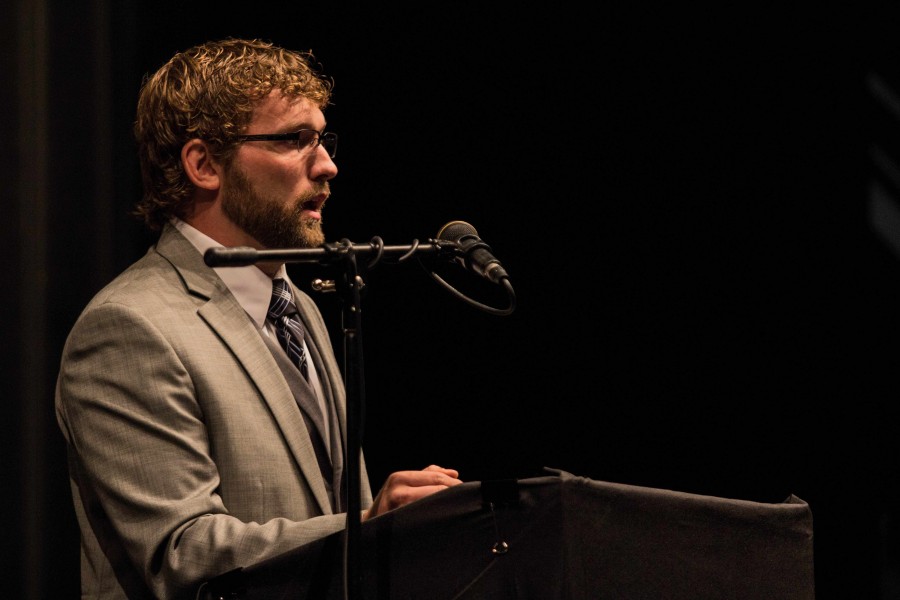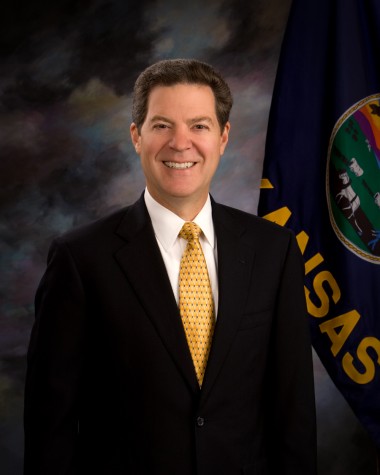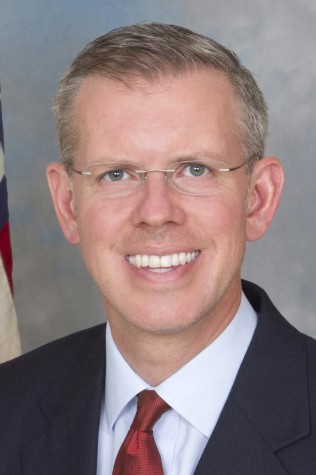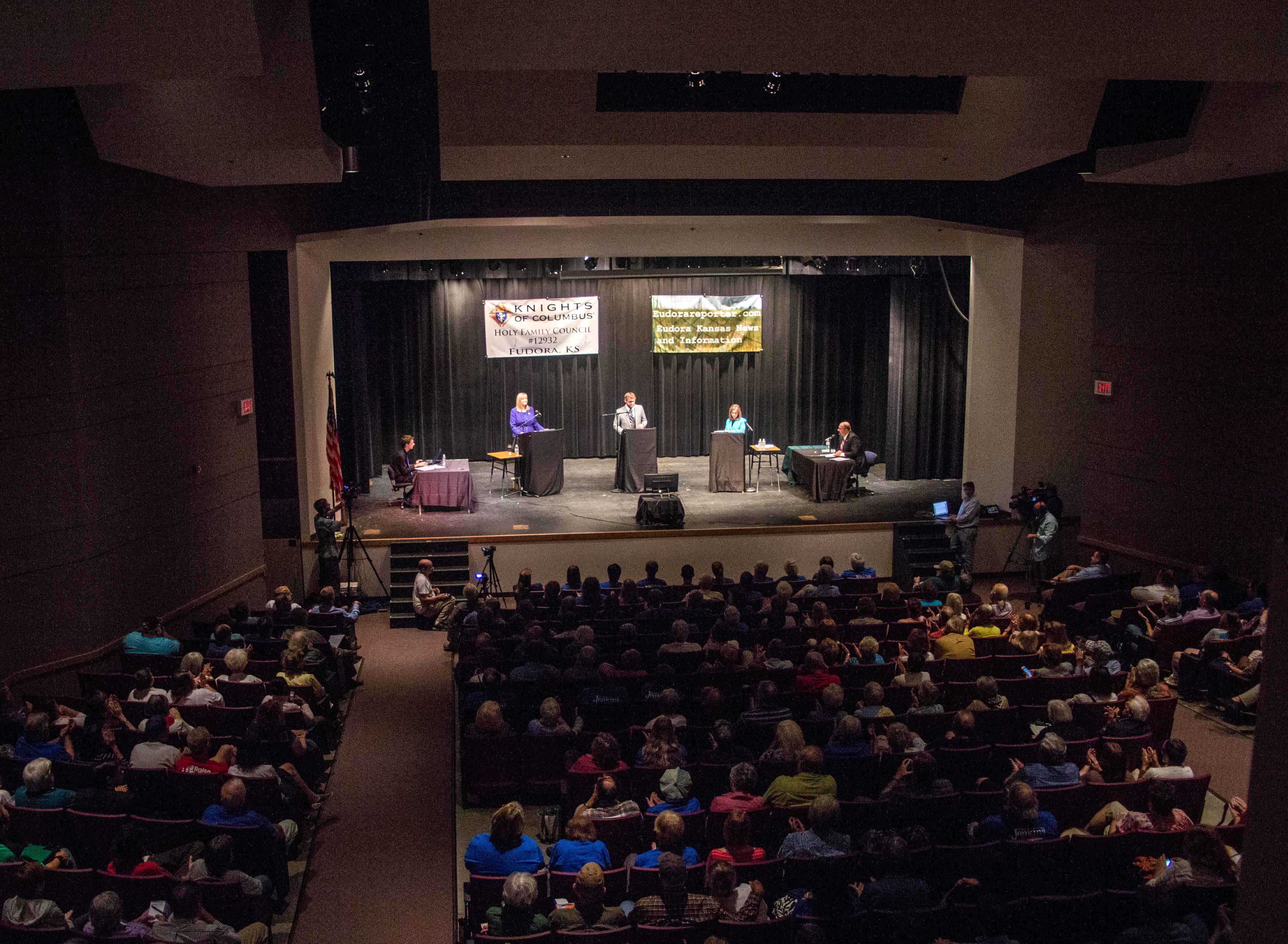November Midterm Elections close on all fronts
October 27, 2014
The Kansas midterm elections are approaching like a storm. This is atypical— considering Kansas is usually a safely Republican state—especially in the Senate contest in which a non-Republican has a real chance of winning a seat for the first time since 1932 when George McGill won a three-way race. The races for the Governor’s seat, the 2nd district House of Representatives seat, incumbent Pat Roberts’ Senate seat and the Secretary of State position are all close and consistently competitive. As Nov. 4 approaches, the gaps in polling close rapidly compared to months prior, and the all competitions are far too close to call at this point. The results will determine the trajectory of the state and nation for many years to come, making an informed decision about these candidates prior to voting imperative.
Congress:
2nd District House of Representatives
The House of Representatives 2nd District Congressional race is between Democrat Margie Wakefield, Republican Lynn Jenkins and Libertarian Chris Clemmons. Each candidate focuses on issues such as education, job creation, agriculture and social security.
Republican candidate Lynn Jenkins’ lead is bolstered by the traditional conservatism of the state and her campaign’s financial advantage. Jenkins is sitting on $2 million, according to the Topeka Capital Journal. Jenkins says her top three priorities if she gets elected are listening to Kansans, creating opportunities for Kansans through jobs and repealing Obama’s health care law.
According to the Topeka Capital Journal, Wakefield, the Democratic candidate, hopes to create “an environment that attracts good paying jobs and entrepreneurship.” She also hopes to provide better opportunities for working families to succeed and will push to be assigned to the House Agriculture Committee.
“A lot of (the campaign) is centered around jobs, whether that’s making sure minimum wage is a livable wage (or) whether that’s making sure that women are paid equal,” said Kyle Gardner, Field Director for Wakefield.

The campaign of Libertarian candidate, Chris Clemmons, mainly focuses on abolishing laws such as the Patriot Act, NDAA (National Defense Authorization Act), and RICO (Racketeer Influenced and Corrupt Organizations Act). Clemmons hopes to “reduce the federal budget and lower the tax burden on all Americans.” He believes the growth of hemp, high-growing varieties of the Cannabis plant, is necessary to bring in money for Kansas.
Senate
The Senate race between leading candidates Independent Greg Orman and Republican Pat Roberts has been a long, controversial contest, garnering national attention. After a series of disputes over Democrat Chad Taylor’s eligibility to withdraw his name from the ballot, he was finally allowed to leave the race when the the Kansas Supreme Court overruled the Secretary of State’s demands.
When Taylor first attempted to remove his name, a move which was predicted to lend a significant number of votes to Independent candidate Orman, Secretary of State Kris Kobach asserted Taylor could not do so. Kobach contended Taylor would need to write he was “incapable of fulfilling the duties of office if elected” in those precise terms in his letter of withdrawal.
Despite Kobach’s argument, the Kansas Supreme Court ruled Taylor could, in fact, withdraw. Kobach then argued a Democrat had to fill Taylor’s vacancy, but a Shawnee County District Court panel dismissed this claim on Oct. 1.
The unusual nature of the election, in part, is responsible for Taylor’s withdraw and Kobach’s opposition. It is bizarre for a three-term Republican incumbent like Roberts to face a serious threat to his incumbency in a consistently conservative state, and all parties are making every attempt to ensure victory for their candidate.
According to RealClearPolitics.com averages between Sept. 27 and Oct. 7, Orman is polling at 45.5 percent and Roberts is polling at 43.3 percent. Roberts also faced a challenging primary in which he polled under 50 percent against opponent Milton Wolf, another factor that may hurt him in November.
During the Sept. 6 debate in Hutchinson, Orman touted his independent credentials and criticized both parties for their inefficiencies while Roberts linked him to Democratic leadership, especially Senate Majority Leader Harry Reid. Roberts proclaimed his loyalty to Kansas and conservative values while Orman grouped Roberts with the rest of a flawed Congress.
The two disagreed on marijuana policy, gun control and ISIS, but with the exception of marijuana laws, the candidates differed primarily with the details.
Roberts argued for complete abolition of gun control while Orman advocated the implementation of background checks at gun shows similar to those faced at a licensed dealer.
Both were critical of national defense and the response to ISIS, but while Roberts stated President Barack Obama is the cause for the disaster, Orman stated the Congress, the two previous presidents and the sequester are all to blame for the poor response in the Middle East.
Orman said the war on drugs has not worked, while Roberts shut down the discussion of marijuana laws with a simple response.
“That’s a state issue,” Roberts said. “If you want to get a Rocky Mountain high, go west.”
Gubernatorial:
Despite Kansas’ powerful Republican slant, the state’s governor seat vacillates between parties often. Democrat Paul Davis, a leader in the Kansas House of Representatives, is challenging Republican Governor Sam Brownback in an attempt to sway this often contested seat in his party’s favor.

The challenge comes at the end of Brownback’s controversial first term, one in which the governor’s conservatism alienated the moderate wing of the Kansas Republican party and led more than 100 current and former Republicans to endorse the more moderate Davis campaign.
The Davis campaign ran into its own issues, however. The Coffeyville Journal reported on an incident in 1998 during which Davis, then 26, was in a strip club receiving a lap dance at the time of a drug bust. Davis was not charged of wrongdoing, and he was not married at the time of the event, but the publicity may be damaging to his image in the state.
The core of this race is not scandals or intra-party division, but the candidates’ very different approaches to the relevant issues facing the state.
Brownback and Davis met on Sept. 6 along with the candidates for the Senate seat at the state fair in Hutchinson for a fiery debate.
Each candidate had clear, consistent talking points. Davis focused on Brownback’s “failed experiment,” and Brownback worked to link Davis to the national Democratic party. Both candidates slipped those talking points into most of their answers.
Major points of contention were education, the economy and healthcare.
Davis has made education a focal point of the 2014 election, and he says the Kansas Supreme Court ruling stating the state’s education funding levels are unconstitutionally low validates his concerns.
Brownback claimed much of the lack of funding could be traced back to inadequate federal stimulus money, a problem the incumbent attributed to the president’s actions. Brownback also claimed Davis’ proposed education plan would cause the consolidation of rural school districts.

Brownback defended his economic record as a successful effort to bring prosperity and business to the Kansas economy in the face of tough odds. He stated he began with $876 on hand in the Kansas government, but multiple sources have debunked this assertion as the budget six months prior to Brownback’s entrance into office. The state actually had more than $200 million on hand when he was sworn in, despite claims.
Brownback touted tax cuts and other incentives for business as a plan to strengthen the Kansas economy through free market economics. Davis was skeptical and pointed to the projected $238 million budget shortfall for 2016, arguing the governor’s methods may lead to additional education cuts.
Denouncing Davis as the “Nancy Pelosi of Kansas,” Brownback likened his opponent’s support of the expansion of Medicaid to the implementation of the Affordable Care Act, also known as Obamacare. Davis argued increasing Medicaid would be good for the Kansas economy and could help keep rural hospitals open. He also criticized the KanCare program, which privatized Medicaid.
The debate drew fierce applause from both sides of aisle, and the race is still too close to call conclusively. According to a RealClearPolitics.com average spanning Sept. 27 to Oct. 7, the race is tied at 45 percent for both candidates.

